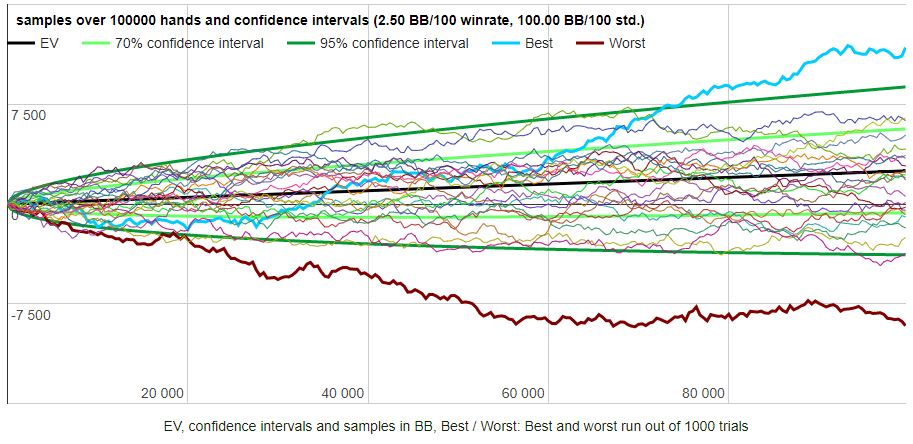How to Become a Professional Poker Player: Essential Strategies and Insights

Introduction: Turning a Poker Passion Into a Profession
Embarking on the journey to become a professional poker player is far from a simple feat. While the game itself is widely loved for its excitement and complexity, transforming poker from a challenging hobby into a sustainable career involves more than just winning a few hands. Here, drawing on real-world experience, we’ll cover the foundational principles, step-by-step guidance, and personal lessons learned on the path to poker professionalism.
Quick Tips for Aspiring Poker Pros
To set yourself on the right path, keep these core pointers in mind:
- Choose one format or poker variant and specialize in it.
- Commit to mastering the rules, strategies, and odds inside and out.
- Continuously invest time and resources in education and skill improvement.
- Develop your mental game: focus, discipline, and emotional control are as valuable as technical skills.
- Don’t overlook online play or cash games-tournaments aren’t the only route to making a living.
What You’ll Learn In This Guide
This comprehensive guide covers:
- A firsthand account of transitioning to professional poker
- How to select and specialize in your ideal poker format
- Steps for mastering core strategies and odds
- Best approaches for ongoing learning and education
- Building soft skills to support long-term success
- Effective bankroll management strategies
- The real-life pros and cons of life as a professional player
- Honest advice on whether this career is the right path for you
Becoming a Professional Poker Player: My Journey
My introduction to poker happened in 2008 through casual home games with friends. Initially, the competitive thrill and camaraderie were my main attractions. Soon, I realized poker could be more than entertainment-it offered the potential to out-earn a typical part-time job during my university years.
During challenging times, especially after personal loss, poker became not just a distraction but a focus. At first, my approach was scattered: I played a mix of tournaments, sit-and-gos, and cash games without a dedicated study routine. Despite this, it became clear that consistent effort and a competitive mindset could lead to real results.
A pivotal moment came at a live tournament when I met a true poker professional. Listening to him analyze hands using concepts like ranges, advanced math, and tournament theory completely changed my perception. This encounter inspired me to delve into poker strategy, both through personal study and eventually through coaching.
For a period, I traveled the international poker circuit, competing at world-renowned events like the WSOP and European Poker Tour stops. Coaching and embracing the mental game led to my biggest leaps in progress. Eventually, I chose to focus on online poker, which better fit my lifestyle. The insights in this guide are drawn from both personal trials and pivotal turning points along the way.

Step 1: Specialize in One Poker Format
One of the most common pitfalls is hopping between multiple poker formats in pursuit of easy money. Early in my career, I frequently switched between cash games, tournaments, and online formats-resulting in lackluster progress in any single one.
For real improvement, choose one primary format (tournaments, cash games, sit-and-gos, or another variant) and focus all your learning and play there. The game you choose should fit your lifestyle and personal preferences, not just potential earnings.
- Cash games offer flexibility with time commitment.
- Tournaments provide dynamic play but often require long sessions.
- Sit-and-gos are quicker but still demand discipline.
Invest your study time into mastering the nuances of your chosen format. Avoid dabbling elsewhere until you have built a genuine edge in your specialty.
Becoming an expert in one format will accelerate your development and position you far ahead of recreational and multitasking players.
Step 2: Master Strategy and Understand Your Odds
After selecting your format, it’s crucial to dive deep into both the game’s basic rules and its underpinning mathematics. Poker is fundamentally a game of numbers-odds, probabilities, pot odds, and hand ranges.
Key areas to focus on include:
- Calculating your chances of improving a hand in specific scenarios.
- Understanding and applying pot odds and implied odds to make informed calls or folds.
- Developing the ability to assign hand ranges to opponents instead of focusing solely on single hands.
- Using frequencies and combinatorics to analyze likely hands and population tendencies.
Assigning specific ranges to opponents (rather than pegging them to one hand) is one of the most important leaps for new players.
Consistent analysis of every action and bet size-from preflop through the river-allows you to narrow your opponents’ possible hands and make optimal decisions more reliably.

Step 3: Invest in Formal Education and Coaching
Reaching a professional level requires more than intuition or watching random YouTube videos. While free content can be helpful, structured learning is significantly more effective.
Consider:
- Purchasing advanced training courses or joining coaching programs tailored to your poker format.
- Hiring a reputable coach to receive direct feedback and guidance.
- Engaging with a community or study group for collective improvement.
Personal experience and the stories of other pros show that formal investment in coaching and education delivers accelerated progress and avoids costly mistakes.
Step 4: Embrace Continuous Learning and Adaptation
Poker is constantly evolving. Strategies that win today may not work tomorrow, especially as more learning tools and analytical resources become widely accessible.
Maintain a growth mindset with the following habits:
- Review your own hands regularly to analyze mistakes and uncover leaks.
- Study opponents’ gameplay to identify population trends and weaknesses.
- Discuss tricky hands with knowledgeable peers, mentors, or forums.
- Use modern tools like solvers and tracking software to explore Game Theory Optimal (GTO) solutions and exploitative strategies.
By striving to learn every day, you stay ahead of the field and adapt to a shifting poker landscape.
Step 5: Prioritize Mental Toughness and Healthy Habits
Technical skill is only part of the equation. Many professionals underestimate the impact of mental composure, emotional discipline, and overall wellness.
Common pitfalls include tilt (emotional swings), lack of focus, and burnout. To perform consistently:
- Ensure adequate rest and recuperation.
- Maintain an exercise routine and balanced diet.
- Remove distractions and create a focused environment for play.
- Prepare mentally before sessions and know when to walk away.
- Avoid chasing losses and always make decisions based on analysis, not emotion.
The road to professional poker is a long-term pursuit, and healthy routines ensure you have staying power.

Step 6: Practice Responsible Bankroll Management
No matter your skill, long-term variance is a reality in poker. Sound financial discipline is vital for survival and growth.
Practical bankroll management tips:
- Separate your poker funds from personal finances.
- Maintain a sufficient number of buy-ins for your format and stake-this varies if you play cash games, tournaments, or sit-and-gos.
- Resist the urge to make frequent withdrawals from your bankroll.
- Set aside savings that cover at least six months of living expenses.
- Be willing to drop down stakes when necessary to preserve capital.

The graph above illustrates variations in outcomes over 100,000 hands with a standard win rate. Even highly skilled players will experience downswings; robust bankroll management allows you to weather these storms and continue improving.
Having a dedicated bankroll and emergency savings is essential. Variance can hit harder and last longer than most new players expect.
The Realities of Life as a Professional Poker Player
Before committing, it’s crucial to weigh both the rewards and challenges this lifestyle brings.
Benefits:
- Independence: Set your own schedule and be your own boss.
- Intellectual challenge: Constantly refine your strategy and compete against skilled opponents.
- Travel opportunities: Top-level play can take you to major events worldwide.
- Earning potential: Poker offers uncapped income for those who excel.
Drawbacks:
- Emotional stress: Swings in luck and prolonged downswings can test mental resilience.
- Demanding workload: Success requires countless hours at the tables and even more invested in study.
- Misconceptions: Friends and family may not understand the professional nature of poker, often viewing it as just gambling.
Before you dive in, reflect on whether the professional path fits your personality, goals, and risk tolerance.
Should You Pursue Professional Poker? Honest Reflections
Ultimately, deciding to become a professional poker player requires introspection and honesty. Are you motivated by genuine passion for the game, or are you simply seeking an escape from your current routine?
Sustained motivation and long-term success come from a love of the game and a willingness to put in the necessary work. If your only driver is money, perseverance through tough stretches will be far harder to muster.
If you have a deep passion for poker, clear financial and personal goals, and realistic expectations, diving in can be immensely rewarding. For those at the beginning of their journey, start small, stay disciplined, and allow your skills and ambitions to grow alongside your experience.
Whether you play for fun or aspire to the highest levels, taking a structured, thoughtful approach is the best way to succeed in poker and enjoy the journey along the way.













